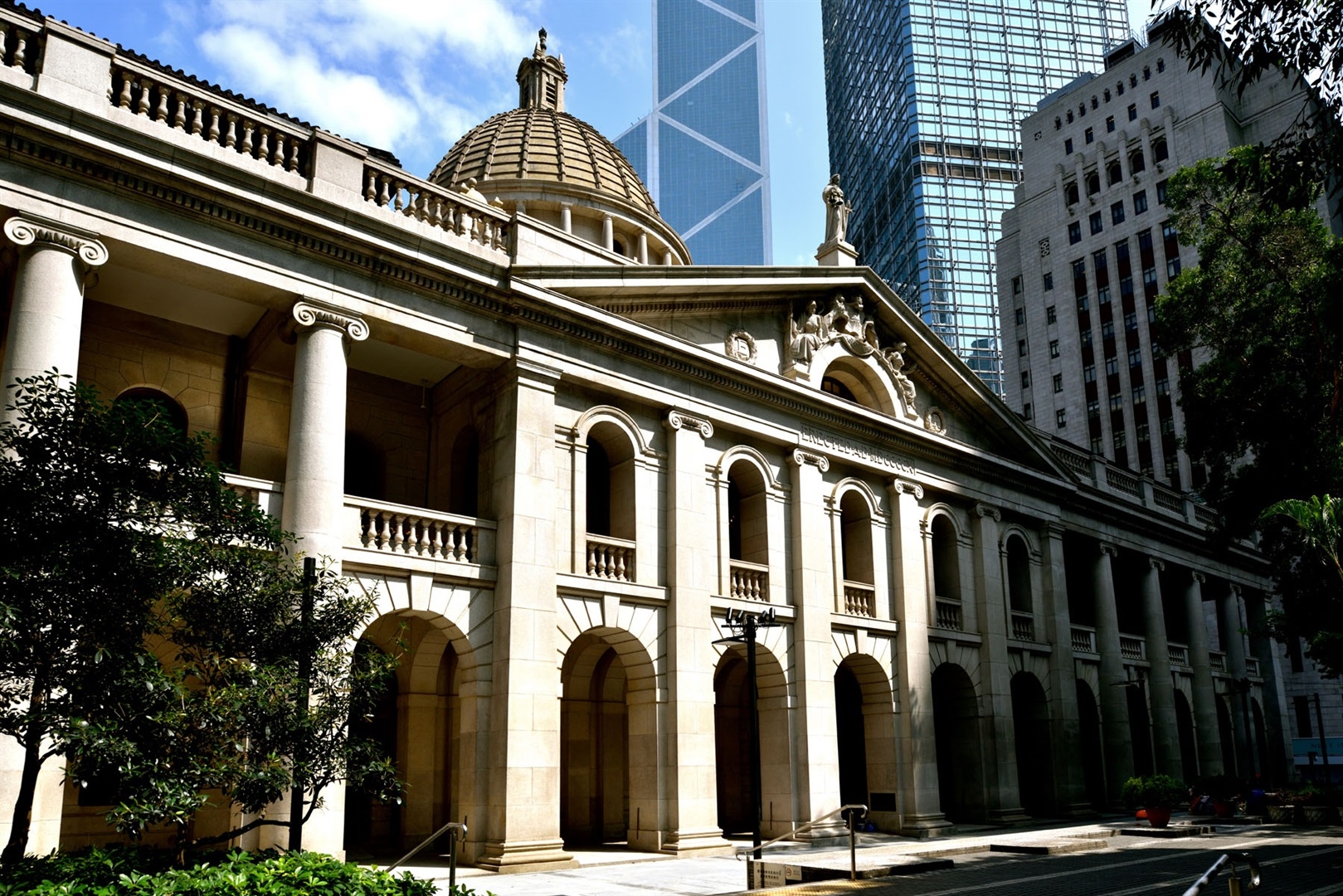There are 3 groups of people: Those who are subjective and those who are objective; or those who are in-between.
“Moral absolutism” is unconditional and dogmatic, and no moral principle can be changed. “Moral relativism” holds that moral rules can change, and apply to different kinds of people in a society at different times. Moreover, it says when the world changes, moral rules are affected by various new factors, like the modern research results that tell us that men were born different. So, we should allow certain legal exceptions for sex orientations in order to keep a society in harmony and its human development sustainable.
Proponents of legalising same-sex marriage or union contend with great fervor that any partnership bans are discriminatory and unfair, and that same-sex couples should have access to all the equal status, rights and opportunities enjoyed by different-sex couples. On the other hand, their opponents contend that marriage or union should be between a man and a woman, and marriage is morally for procreation and human survival. Same sex love is unnatural; and marriage, or even a registered partnership, should not be recognised between people of the same sex, though their behaviour can be accepted.
In 2023, the Hong Kong Court of Final Appeal (CFA) handed down an unprecedented landmark judgement allowing the appeal on a same-sex marriage issue. In that case, a man married another man in New York. The Court ruled that the government of Hong Kong has not fulfilled its constitutional duty under the Basic Law (基本法) and Hong Kong Bill of Rights Ordinance (香港人權法案條例) to provide any legal framework for same-sex relationships to be recognised. In the case, the Court also granted certain rights to the parties of a gay marriage registered in a foreign country.
The CFA made an incidental order that the Government should legislate to allow same-sex union or establish “an alternative legal implementing framework” for the same-sex partnerships in Hong Kong by October 2025.
Replying to the Court order, the government of Hong Kong , while juggling the options, said that the subject involves complexity of issues, the various responsible branches were studying the mechanism relating to the legislative recognition, eligibilities, conditions, how to avoid abuses of the framework, as well as the implications of the rights and obligations therefrom, including “core rights” and “supplementary rights”.
There are of course oppositions in Hong Kong to same-sex relationships. They said the marriage is contrary to the religious world or is inconsistent with Chinese traditional values. Same-sex union will destroy the mainstream of heterosexual culture, and encourage many men and women to turn gay or be sexually promiscuous. Marriage is for procreation. Same-sex couples cannot produce children together and so should not be reconginsed. The partnership is thus unnatural and baffling, and not to be tolerated. It is just a political attempt of the CFA to interrupt Hong Kong government.
There are nevertheless strong views refuting such objections. They hold the opinion that marriage is not only for procreation. Does it mean infertile couples or couples not looking for children should be prohibited from marrying? All humans shall be equal and receive the same status, rights and opportunities. Hong Kong should follow the internationally recognised human right principle that sexual minorities must not be discriminated, because they are different but not abnormal.
Traditional and religious moral concepts have changed over time. For example, people now accept premarital sex, divorce and abortion. Some argue that there is no better test of a person’s true morality to see if he could imagine that he himself were the same person in question facing all the hardship and bullying imposed by others. Would he or she think differently? We are all different but equal. All have something to contribute to Hong Kong.
The Court of Final Appeal now ruled that equal opportunities is a basic civil right protected by the laws of Hong Kong and same-sex partnership is one of such kinds. But, will the right be restricted by any objections of some religious and moral groups? To deny civil partnership to them can be to take away the legitimate rights, otherwise enjoyed by all citizens, from the sexual minorities over their housing, financial, tax, hospitalization and even death arrangements. The Court of Final Appeal stressed that the deprivation of such same-sex union rights result in many real cases of injustice and hardship including that in some cases, the partner was denied the right to visit the loved one in the hospital or handle his death matters. There are also cases that although a person contributed to the financial duties of a household but after the death of his significant other, all the partner’s wealth would unfairly be taken away by his siblings or even remote relatives.
The international moral standards over same-sex relationships transformed a lot in the past. Now, almost 40 countries in the world, including even Italy which is a Catholic country, allow same-sex marriage or partnership.
In Asia, Taiwan and Thailand already legally allow same-sex partnership. Some courts in Korea and Japan decided that it was not legally right to disallow civil union. Years ago, China decriminalized homosexuality. The government says that LGBTQ people do not face discrimination in the country. In Hong Kong, being gay is now not criminal although it was once regarded as a serious offence. In 2025, there are nevertheless no laws to punish discrimination or harassment on the grounds of sexual orientation or gender identity issue. Rights such as inheritance, housing, medical, employment benefits, immigration and tax rights are not, by the operation of law, conferred upon homosexual citizens in Hong Kong and any right can be allowed only upon a case-by-case examination by the government authorities, or after a long court trial after the couple has to disclose in detail their private life to the public.
Modern medical and psychological researches citing cases and theories have sparked the truth that being LGBTQ (lesbian, gay, bisexual, transgender, questioning one’s sexual orientation) or AIA2S (asexual, intersex, agender or 2-spirited) is not any kind of human abnormality, sickness or perversion. These people are just different. And so, discrimination and unequal treatment, no matter those arising from social prejudice, or from government policies and systems, shall be eliminated.
The final consideration of the issue is about Hong Kong being an international city and its related problems.
International cities like Hong Kong, as a melting pot of all kinds of everything, should have enlightened perceptions of legal and social acceptance, equality and open-mindedness over lifestyles for different races and minorities. In some cities like London and New York, they even recognise LGBTQ residents as a distinct group for economic contributions. The government in these cities, in order to attract creative talents and new investments, typically works hard to create an environment that is supportive, respectful and non-judgmental towards the LGBTQ community, and legally grant them equal human rights, opportunities and status. Researches show that these talented ones prefer to move to live in the liberal and prejudice-free cities. They contribute a lot to the creative and innovative industries. International cities in Asia like Tokyo, Singapore and Seoul (except Bangkok and Taipei) do not recognise civil partnership yet. Will Hong Kong strategically put herself ahead of these cities in Asia in order to stand out by making use of the present opportunity spawned by the Court of Final Appeal decision?
Under the “One Country, Two Systems” principle governing Hong Kong as an international city, our executive and legislative arms are used to respecting the decisions of courts, especially those of the highest Court of Final Appeal in Hong Kong. Now, here comes the challenge. The final test of a true international city is her government’s acceptance of those court decisions which she may not agree, but important for the equality of the minorities in the society. Chinese central government time and again stresses that in order for Hong Kong to thrive, her “internationalism” , “rule of law” and “freedom of right” must be retained and developed. Will the modern humanistic concept of equality in question be accepted in Hong Kong despite the fact that the city is a special administrative region of China?
The Court of Final Appeal, in passing the judgement, highlighted some of the following reasons:
- The non-recognition of committed and stable same-sex relationships gave rise to real
difficulties in many situations. If, for instance, one of the partners were to be hospitalized, the other partner, having no recognised status as such, might be denied visiting rights or medical information or participation in decision-making regarding the other’s treatment. Similar problem took place in the disposition of properties if one dies (under paragraph 135 of the decision).
- The absence of legal recognition of same-sex unions results in arbitrary interference with the private life and dignity of partners in same-sex relationships. When these people go to court to litigate for their rights, they will have to expose themselves to the publicity, stress, uncertainty and expense of litigation. They were even obliged to make public details of their private life and to subject themselves to public scrutiny (paragraph 145).
- The absence of legal recognition of the same-sex relationship is apt to disrupt and demean the private life of committed, loving, stable, long-term relationships between partners of the same sex. In the ordinary course of their daily lives, they face a state of affairs in which their privacy, and the dignity associated with private life, are subject to arbitrary or unlawful interference (paragraph 258). The arbitrary interference with the right to privacy and private life is contrary to the mandate in Article 14 of the Bill of Rights (paragraph 259).
There is one final thorny legal situation. Under the “One Country, Two Systems” principle governing Hong Kong, our courts adopt and practise common law. Common law is the judicial system being enforced in many western jurisdictions. The community is deeply rooted in “stare decisis” (“to stand by things decided”) where courts follow the judicial precedents established by previsions decisions within the same judicial system, or of foreign common law jurisdictions.
When more and more same-sex partners here (they can be of Chinese or foreign nationality) register their union legally in another country, the Hong Kong court will have the following difficult situations to handle:
- If the Hong Kong court insists the “married” couple are just 2 unrelated individuals, but when the 2 partners have children or foreign assets, and the local court decision of Hong Kong on these matters would certainly affect their overseas assets or children, would the foreign court still consider or follow a Hong Kong court decision which refused equal rights to the same-sex partners in this case? and
- vice versa: when a foreign court recognising same-sex marriage makes a decision affecting the same-sex couple’s assets or children in Hong Kong, would a Hong Kong court likely follow or take into account of the foreign court decision?
In the light of the above, the lack of civil partnership in Hong Kong can always be a serious alienation factor that creates unwelcome disconnection between Hong Kong and other common law courts. Will we gradually lose affiliation and interaction with other important common law jurisdictions in the world?
International cities in the world champion free trades, social acceptance, diversity, and individual freedoms and rights. They are predominantly for the notion that everyone should have the liberty to live their lives as they see fit, as long as they do not harm others. People should be allowed to hold their beliefs, practise their traditions, speak their mind and follow their own life styles. These are in fact what have been treasured in Hong Kong. The decision of the Court of Final Appeal did not impose same-sex “marriage” in Hong Kong. It did not also say that “civil union” is equal to a “marriage”. It simply suggested that by “the alternative legal framework”, the same-sex partners should, could and would enjoy equal rights as a citizen, free from bullying or discrimination from those who do not accept that the same sex partners can live as a loving union. Thus, the suggestion of the Court for an alternative framework granting the couple the fundamental civil rights of recognition in the present situation can be a pragmatic and rational option. It can, once and for all, solve a legal problem in Hong Kong that comes up incessantly and unnecessarily. The registration system makes things easier for the government actually.
A progressive society actively seeking social, economic, and political reforms to ensure equality, tolerance, social justice and compatibility with the rest of the modern world may be the right set of the rails which will shape Hong Kong.
This article can also be found at the following sites:





